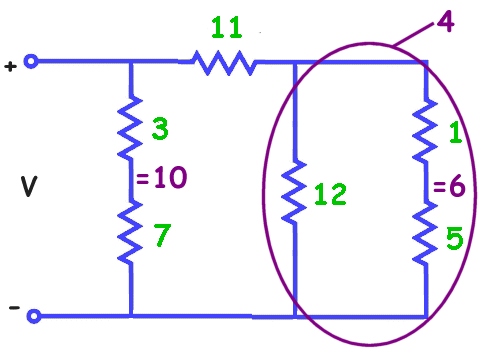Series and parallel circuits learn sparkfun com activity resistors adalm1000 analog devices wiki circuit stickman physics tutorial two types of connections how to calculate the voltage drop across a resistor in simple electronics textbook electrical electronic with connection should i for quora what is advantages disadvantages faqs grafton hs james howard lab 23 sources formula add electrical4u question analyzing nagwa building definition examples academia connect on breadboard kids chapter 26 dc opener these players contain that are at least part audio signal ac diagram ppt online inductor reactance impedance inductive course hero 18 2 siyavula would happen your if you added another arrangement describe its impact upon potential differences each total cur solved switch r1 r2 r3 chegg resistance serial networks 17 5 electric happens as more branches why 4 ways wikihow reference ap 1 where an ammeter be placed so it measures specific does adding decrease effective gcse required practical heat capacity explained included continued between short difference

Series And Parallel Circuits Learn Sparkfun Com

Series And Parallel Circuits Learn Sparkfun Com

Activity Series And Parallel Resistors Adalm1000 Analog Devices Wiki

Parallel Circuit Stickman Physics

Physics Tutorial Two Types Of Connections

How To Calculate The Voltage Drop Across A Resistor In Parallel Circuit

Simple Parallel Circuits Series And Electronics Textbook

Electrical Electronic Series Circuits
In A Circuit With Series And Parallel Connection Of Resistors How Should I Calculate For Voltage Drop Quora

What Is A Parallel Circuit Advantages Disadvantages And Faqs
Grafton Hs Physics James Howard Lab 23

Voltage In Parallel Circuits Sources Formula How To Add Electrical4u

Question Analyzing Parallel Circuits Nagwa

What Is A Parallel Circuit Advantages Disadvantages And Faqs

Building Simple Resistor Circuits Series And Parallel Electronics Textbook

Series And Parallel Circuits Learn Sparkfun Com

Parallel Circuit Definition Examples Electrical Academia
How To Connect Series And Parallel Connections Of Resistors On A Breadboard Quora

Physics For Kids Resistors In Series And Parallel

Chapter 26 Dc Circuits Opener These Players Contain That Are At Least In Part The Audio Signal Is Ac Circuit Diagram Ppt Online
Series and parallel circuits learn sparkfun com activity resistors adalm1000 analog devices wiki circuit stickman physics tutorial two types of connections how to calculate the voltage drop across a resistor in simple electronics textbook electrical electronic with connection should i for quora what is advantages disadvantages faqs grafton hs james howard lab 23 sources formula add electrical4u question analyzing nagwa building definition examples academia connect on breadboard kids chapter 26 dc opener these players contain that are at least part audio signal ac diagram ppt online inductor reactance impedance inductive course hero 18 2 siyavula would happen your if you added another arrangement describe its impact upon potential differences each total cur solved switch r1 r2 r3 chegg resistance serial networks 17 5 electric happens as more branches why 4 ways wikihow reference ap 1 where an ammeter be placed so it measures specific does adding decrease effective gcse required practical heat capacity explained included continued between short difference